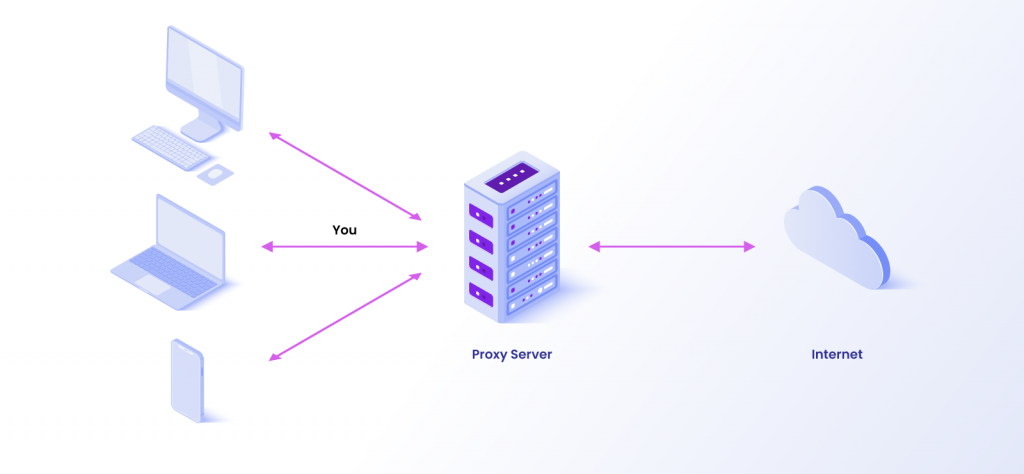When it comes to internet privacy and security, proxies play a crucial role in keeping our online activities anonymous. Among the various types of proxies, SOCKS and HTTP proxies are two commonly used options. While both serve the purpose of routing network traffic, there are significant distinctions between them. In this article, we will dive into the world of proxies and explore the differences between SOCKS and HTTP proxies, shedding light on their unique features, applications, and advantages.
What are Proxies?
Proxies are intermediary servers that act as middlemen between clients and servers. They facilitate communication, process requests, and forward responses. By relaying requests, proxies provide several benefits, such as anonymity, content filtering, load balancing, and caching. SOCKS and HTTP proxies are two widely used types of proxies, each with its own characteristics and applications.
Understanding SOCKS Proxies
How SOCKS Proxies Work
SOCKS (Socket Secure) proxies operate at the transport layer of the OSI model, allowing the transmission of various types of data between clients and servers. They are more versatile and can handle different protocols beyond HTTP, such as SMTP, FTP, and BitTorrent. SOCKS proxies do not modify the data packets and simply act as a relay, making them suitable for complex network environments.
Advantages of SOCKS Proxies
Applications of SOCKS Proxies
Understanding HTTP Proxies
How HTTP Proxies Work
HTTP (Hypertext Transfer Protocol) proxies primarily operate at the application layer and are specifically designed for web traffic. They interpret and modify HTTP requests and responses, enabling advanced features like caching, content filtering, and authentication. HTTP proxies are widely used for web browsing and offer granular control over web traffic.
Advantages of HTTP Proxies
Applications of HTTP Proxies
Differences Between SOCKS and HTTP Proxies
Protocol
SOCKS proxies operate at the transport layer, while HTTP proxies work at the application layer. SOCKS proxies are protocol-agnostic, making them compatible with various protocols beyond HTTP. In contrast, HTTP proxies are specifically designed for web traffic and can interpret and modify HTTP requests.
Authentication
SOCKS proxies do not provide built-in authentication mechanisms. They rely on external authentication methods or don’t require authentication at all. On the other hand, HTTP proxies often support user authentication, allowing access control and enhancing security.
Performance
SOCKS proxies generally perform better for non-HTTP protocols due to their lightweight nature. HTTP proxies, being specialized for web traffic, provide optimized performance for HTTP-based applications, including caching and content filtering.
Firewall and NAT Traversal
SOCKS proxies are known for their ability to traverse firewalls and Network Address Translation (NAT) devices, making them suitable for complex network environments. While not as adept at traversing firewalls, HTTP proxies can still be configured to work in such scenarios.
Application Support
SOCKS proxies can handle traffic from any application, including non-browser applications like torrent clients and email clients. HTTP proxies are primarily designed for web browsing and are best suited for HTTP-based applications.
Use Cases
SOCKS proxies are commonly used for anonymous torrenting, P2P file sharing, and bypassing network restrictions. HTTP proxies, on the other hand, are extensively employed for web browsing, content filtering, and load balancing in web environments.
Choosing the Right Proxy
When selecting a proxy, it is essential to consider your specific requirements. An HTTP proxy would be suitable if you need to anonymize web browsing or bypass geo-restrictions. On the other hand, if you require versatility and support for various protocols, a SOCKS proxy would be a better choice. Assessing your needs and understanding the differences between these proxies will help you make an informed decision.
Conclusion
Proxies are valuable tools for enhancing privacy, bypassing restrictions, and securing internet connections. SOCKS and HTTP proxies are two popular options with distinct features and applications. SOCKS proxies offer versatility, wide protocol support, and enhanced anonymity, making them ideal for diverse network environments.
HTTP proxies, specifically designed for web traffic, provide optimized performance, caching capabilities, and content-filtering features. By understanding the differences between these proxies, you can choose the one that best suits your requirements and enjoy a safer and more private online experience.
Frequently Asked Questions (FAQs)
What is the main difference between SOCKS and HTTP proxies?
The main difference lies in the protocol and application support. SOCKS proxies are protocol-agnostic and can handle various types of traffic beyond HTTP. On the other hand, HTTP proxies are specifically designed for web traffic and offer advanced features like caching and content filtering for HTTP-based applications.
Can SOCKS proxies be used for web browsing?
Yes, SOCKS proxies can be used for web browsing. However, HTTP proxies are more optimized for web traffic and offer better performance and specialized features for web browsing.
Are HTTP proxies more secure than SOCKS proxies?
Neither SOCKS nor HTTP proxies inherently provide security features. However, both can be configured to enhance security by adding authentication mechanisms and utilizing secure connections (such as HTTPS).
Do SOCKS and HTTP proxies work with all applications?
SOCKS proxies can handle traffic from any application, while HTTP proxies are primarily designed for web browsing and HTTP-based applications. Choosing the appropriate proxy based on the specific application requirements you intend to use is important.
How can I select the appropriate proxy for my needs?
To select the right proxy, consider the protocols and applications you need to support. Choose a SOCKS proxy if you require versatility and support for various protocols. If web browsing and HTTP-based applications are your primary focus, an HTTP proxy would be more suitable.
